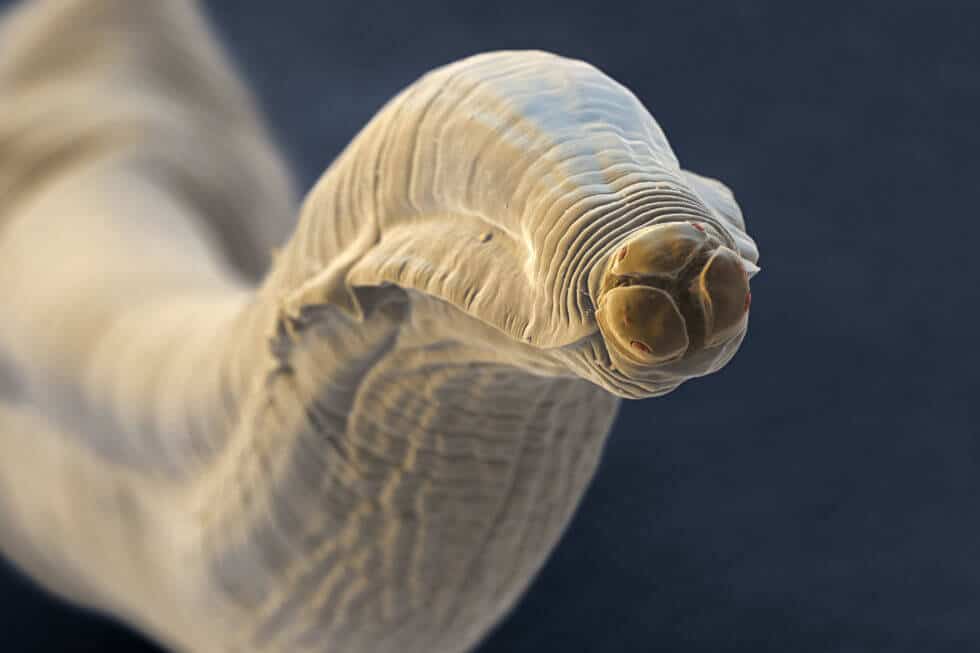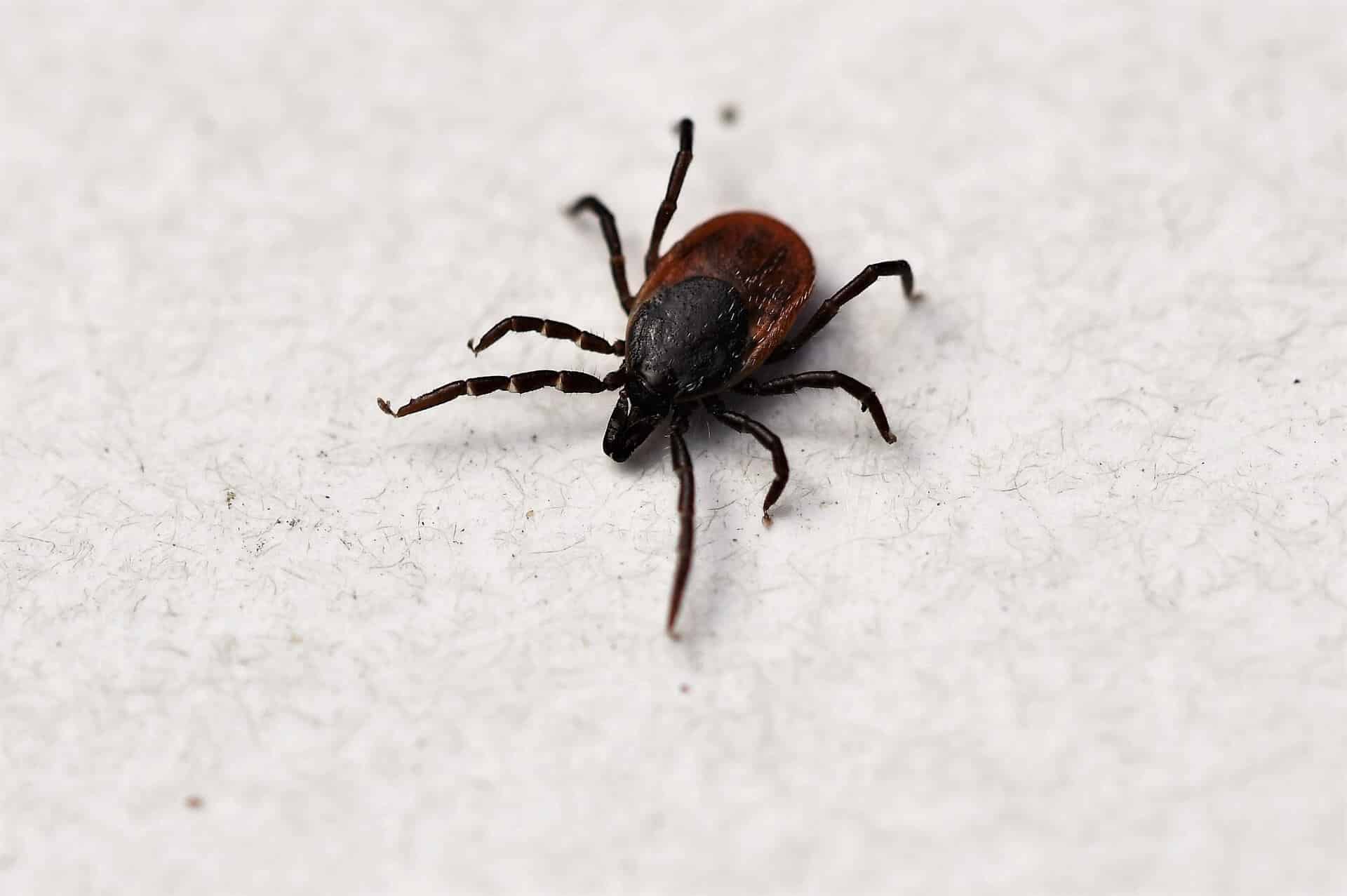In an article recently published in the scientific journal Proceedings of the Royal Society B, scientists working in the field call for the establishment of an "international parasite project", which will include a concerted effort to discover, sample, document and research the world's parasites. According to the authors of the article, thanks to such a project it will be possible to reach a situation where half of the world's parasites will be known already in the next decade - instead of it taking tens or even hundreds of years
By Racheli Vox, Angle - a news agency for science and the environment

Since the dawn of history, parasites have had a major impact on the health of the human race. In recent times, for example, while most of the world is busy with one or another mutation of the corona virus, researchers in Rwanda They identified a mutation In one of the genes of the parasite Plasmodium falciparum, a single-celled creature that is the deadliest of the parasites that cause malaria. The mutation allows the parasite, which is transmitted from person to person through mosquito bites, to be more resistant to drug treatments.
Despite the great knowledge accumulated over the years about various parasites that harm humans, the vast majority of parasites are apparently not known to science at all. Because of this, scientists are now calling for the launch of a broad international project whose goal will be to explore, map and document the fascinating and unknown world of creatures that live at the expense of others, and without whom the natural world would look completely different.
A parasite is any creature that obtains its food, or other substances that are essential for its proper existence, from another creature (called a host). The main parasites we encounter in our daily lives are those that harm humans, such as mosquitoes, ticks and intestinal worms, but only 4 percent Of the parasites known to science today, humans are used as surrogates. in fact, According to estimates, there may be as many as 80 million different species of parasites, with only 10 percent of them discovered so far.
"You have to understand that parasites make up about 50 percent of the animal world," says Dr. Shabi Rothman, director of the fish collection at the Steinhardt Museum of Nature at Tel Aviv University. "In the body of almost every animal lives a whole society of parasites, which developed along with it throughout evolution."
The influence of parasites on the natural world is enormous. "The parasites are an integral part of many ecological and evolutionary processes," says Rothman. Thus, for example, in a study conducted in a nature reserve in California, it was found that parasites were involved No less than 78 percent from the connections in the food web. The most familiar relationship in the food web is the predator-prey relationship, which includes one animal feeding on another, but in the nature reserve it was found that the predator-parasite relationship, which includes a predator that unwittingly eats a parasite living in the body of the animal it feeds on, is much more common, due to the large variety of The species of parasites that live in the bodies of the prey animals.
"Parasites play an important role in shaping biodiversity and competition between species," says Rothman. "The competition between an individual with a parasite load and an individual without a parasite load, for example, is not equal, because even if the parasites do not kill the host, they affect its ability to hunt for food, digest and move to breeding sites or other important places."

Beyond that, it is often possible to learn from the condition of the parasites about the condition of the environment in which they live. "Many times the parasites react to changes in the environment much faster than other animals, so if there is a change in the populations of parasites, such as a parasite arriving in a place it shouldn't be, this can be an indication of various processes, such as environmental pollution," says Rothman.
Life and death in the hand of the parasite
An example of a parasite whose influence on ecological processes is Obruspora papernae, a single-celled creature that harms the filamentous fish (Callionymus filamentosus). This fish arrived on the shores of Israel in the 50s as part ofThe Leapse migration: the passage of fish and other marine creatures (including parasites that live in the bodies of these animals) from the Red Sea and the Indian Ocean through the Suez Canal to the Mediterranean Sea, which began due to the digging of the canal and its opening in 1869 and continues to this day. The parasite multiplies inside the female fish's ovaries and fills them, which does not allow her eggs to develop and makes the infected females sterile or nearly sterile. Although many females are infected with the parasite, the thread flounder is a common fish - so one can only imagine how much its population would expand if the parasite did not regulate its size. Beyond that, the spread of the parasite Obruspora papernae from female to female is also carried out by means of a parasite from another species: Lernanthropus callionymicola, a tiny crab that lives in the gills of the fish.
Another parasite that affects the size of animal populations is Horse hair worms (Nematomorpha), which live in the bodies of insects such as crickets and grasshoppers. These worms affect the brain of the host and cause it to drown itself to death in bodies of water, so that they can mate and reproduce in the aquatic environment.
in danger because of the climate crisis
According to the scientists, there is an urgent need to better understand the world of parasites, mainly because the climate crisis may lead to the extinction of many species of parasites. 30 percent of the parasitic worm species, for example, are expected to become extinct due to its effects. Parasites are considered particularly vulnerable in this regard, and a major reason for this is that many parasite species depend on more than one host. Thus, it is enough for one of the hosts to be affected by one or another climatic change so that the existence of the parasites that rely on it will be in danger.
However, when it comes to the study of parasites, there is no doubt that the hidden is more than the visible. "There are groups of parasites that the scientific community studies more than others - mainly human parasites, which we usually want to live without, as well as parasites of farm animals and pets," says Rothman. "On the other hand, we know much less about the parasites of animals in the wild."
In fact, according to scientists' estimates, most of the animal species that have not yet been discovered in the world are probably parasites. Among the species of parasitic worms that exist in the world today, for example, it is estimated that no less than 95-85 percent are not known to science at all. The parasite species least known to science are those that lodge in the bodies of reptiles and amphibians.
An international effort to research parasites
In a recently published article In the scientific journal Proceedings of the Royal Society B, scientists working in the field call for the establishment of an "international parasite project", which will include a concerted effort to discover, sample, document and research the world's parasites. According to the authors of the article, thanks to such a project it will be possible to reach a situation where half of the world's parasites will be known already in the next decade - instead of it taking decades or even hundreds of years.
According to the researchers, the main part of the work will be carried out in nature museums, where plant and animal samples collected over many years are stored and await more in-depth research. Additional and innovative methods that can help research come from the field of genetics, and they allow sequencing the parasite's genome, through direct mapping of its body or a comprehensive mapping of the environment in which it lives (like an organ in an animal's body), thus identifying it and knowing more about it.
The call to create a project to map the parasites follows on from other large-scale international projects that have brought impressive results in recent decades, including The Human Genome Project, which operated between 2003-1990 and whose goal was to sequence all human genes, andThe Human Brain Project (in which Prof. Idan Segev from the Hebrew University also participates), within the framework of which an attempt was made to create a computer simulation of human brain activity.
Research is in a huge backlog
However, there is no doubt that mapping the world of parasites will not be easy. "There are a lot of technical difficulties in the study of parasites," says Rothman. "In many cases, parasites are small and 'transparent', sometimes you only know they are there after the host animal has died, so the research in this field will always lag behind the research of the rest of the animal world."
In addition, the museums, whose collections are, as mentioned, a main source of research in the field, often suffer from a lack of budgets, and according to the article, the number of parasite species whose information is only in museum collections and does not reach other experts or the general public, because it is not uploaded to the web or because of limitations such as language gaps , probably stands at hundreds of thousands.
Beyond that, according to Rothman, there are currently not enough experts on the subject. "There are enough experts who can identify animals such as birds or fish, and there are also many pictures of them, but The number of taxonomists who deal with parasites is very few", She says.
According to Rothman, the study of wildlife parasites may become relevant to human health as well. "If there's one thing we've learned this year, it's that human actions change the natural world," she says. "The corona virus did not evolve evolutionarily with humans, but with other animals. If we don't even have basic knowledge about species in nature that are unfamiliar to us, we may fall behind in identifying and locating critical processes that may affect us," she concludes.
More of the topic in Hayadan:
